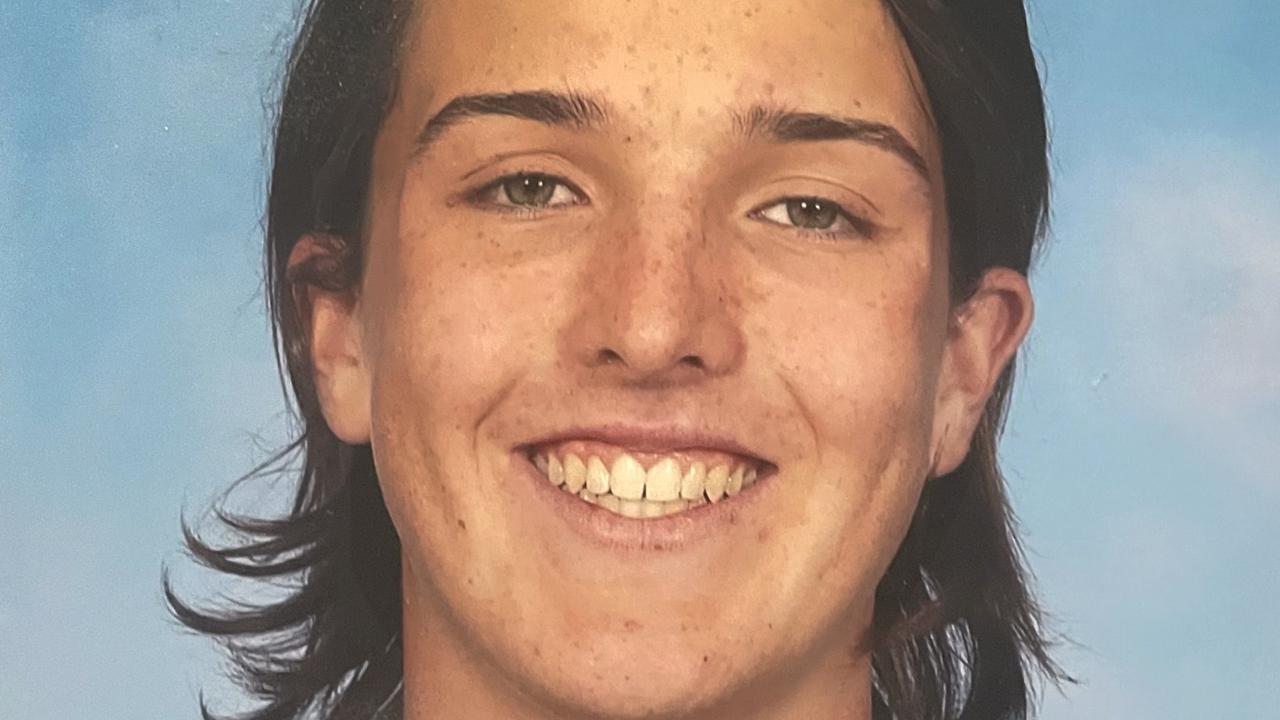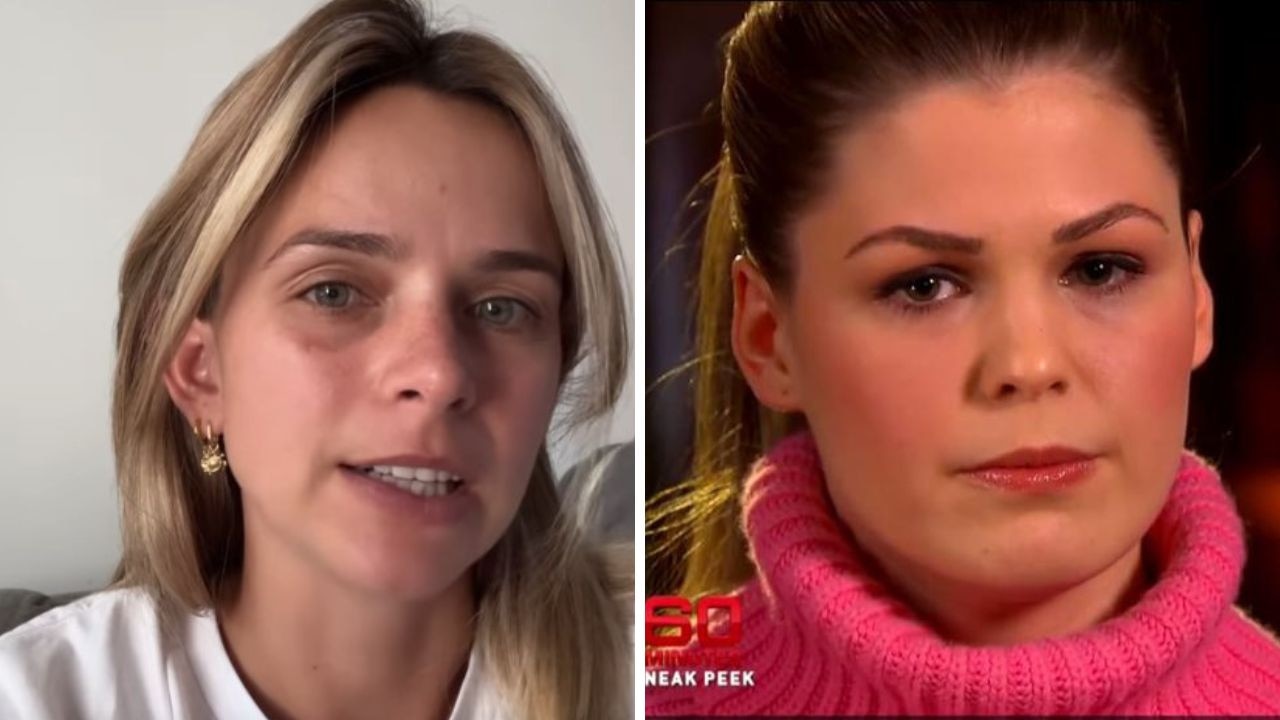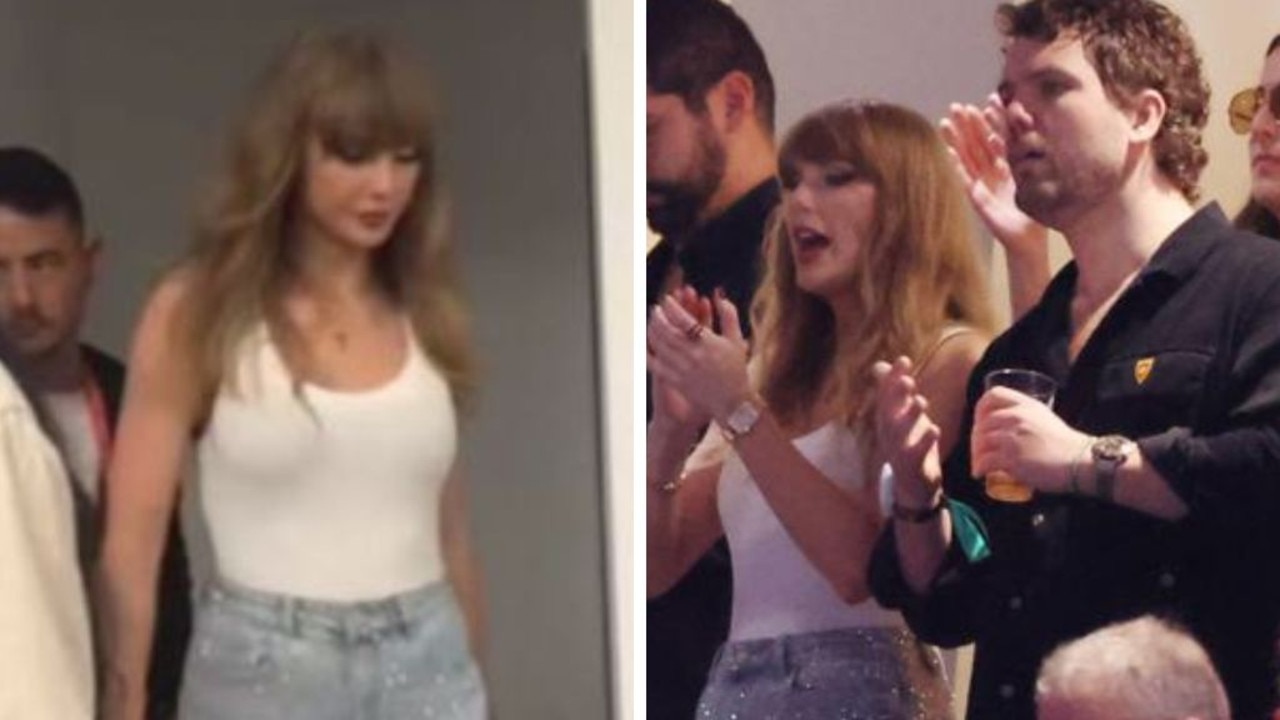We might be celebrating, but despite same-sex marriage, we’re far from equal
HANNAH Mouncey is thrilled same-sex marriage is now legal. But the trans footballer says society Australia is ignoring something.
OPINION
I AM writing this on January 9, 2018, a day no more significant than others for most, but for the gay and lesbian community — the day same-sex marriages can finally take place.
A joyous occasion I’m sure, especially for those being wed today. I’ve already seen countless comment pieces and op-eds in major papers, celebrating that today is the day the LGBT community is finally seen as equal, but quite frankly, for the T component of the umbrella, that’s bullsh*t.
I can’t comment on those writing the pieces, they may well be from the gay and lesbian community, but they certainly aren’t trans. Because I couldn’t be more confident in the fact that no trans person would ever claim to feel equal within Australian society.
It’s an easy assumption and conclusion to come to, and I can see why for the general community it would make sense (being gay and trans is sort of the same thing, right?), but those involved in the LGBT community should certainly know better than to think anything has changed for the trans community.
Maybe at first glance you might think things have changed, but like anything at face value it very rarely tells the whole story. I would say that out of the whole debate, there was one positive come out of the Yes vote; someone who is married and transitioning no longer has to divorce their spouse to be legally recognised as their true gender.
For while on paper a man and woman were married, it wasn’t legally possible to stay that way once someone transitioned from one gender to another.
That is a huge benefit, I can’t lie, but if you look at the bigger picture it could be argued the trans community is in an even worse place than before the same sex marriage debate began. The trans community was absolutely hammered in all sorts of media campaigns and scaremongering from certain elements of the No side, and as a result a lot of trans people I know feel more unsafe and unwelcome in the community now than they did before.
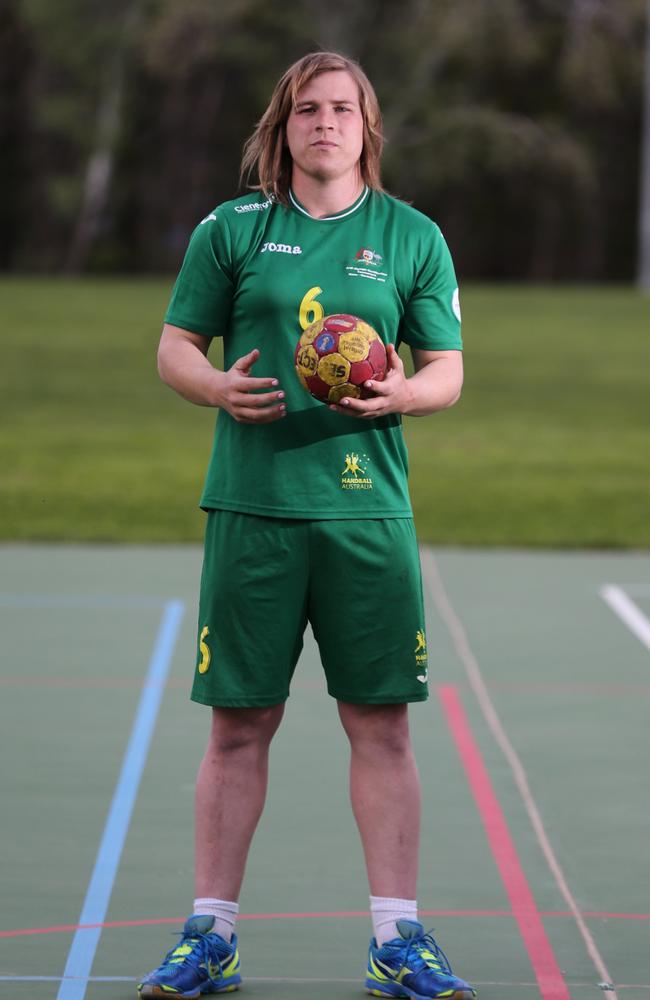
The absolute lies being dished up by organisations such as the “political posting mums” played a massive role in that. The lies about the Safe Schools program, the attempts to create fear around boys being allowed to wear dresses to school; it was all completely abhorrent and I struggle to understand how people could justify vilifying some of the most vulnerable people in our community for their own political gain. It wasn’t even what the debate was about.
But what it does show is that the extreme sides of the No campaign were just as clued in about where trans people sit in society as we are ourselves. They know that for all the gains made by the gay and lesbian community towards social acceptance, the trans community has been left a long way behind.
This is not the fault of anyone, certainly not the LGBT activists who got the vote over the line, but it’s true nonetheless. To try and claw back as many voters as they could, the No campaign needed to instil fear through ignorance. They made a calculated bet that while people understand the gay and lesbian community, they have very little knowledge of the trans community and the Safe Schools program; and as a result people’s views of those things could be much more easily manipulated than on gay marriage itself.
To put it into perspective just how vulnerable trans people, and particularly young trans people are, there is one statistic which says far more than anyone ever could. A recent survey by the Telethon Kids Institute, found that 80 per cent of trans young people have engaged in self-harm and 48 per cent have attempted suicide. What that says to me is that as a society we are in no way anywhere near accepting enough if we have these sorts of rates of self-harm among trans people.
People are often quick to write off “transgenderism” (if that’s a word), as a mental illness itself, but it’s far from it. And that’s exactly the sort of attitude that shows why trans people so often can’t get the help they need.
And while the report refers to younger people; the lack of understanding and acceptance is in no way restricted to them. I’ve gone into my own struggles with mental health issues, even in this past week I’ve seen myself lose out on two jobs simply because I’m trans. I tried get a short term causal job while things are quiet over Christmas and received an email from one employer asking if I could start that day because they were desperately short of staff.
When I turned up to work, the immediate response I got was: “You’re Hannah? You’re really Hannah?” when I said yes the response I got was: “OK, you can go home, I have your number and if we ever need staff I might call you.” This from the same person who four hours earlier was practically begging me to come in.
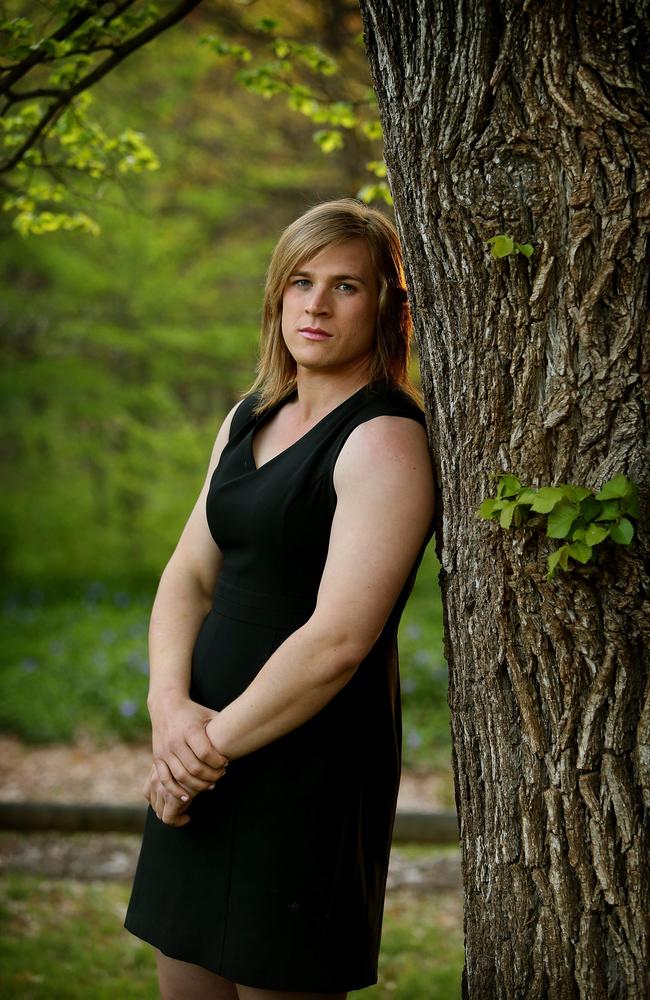
I know that was just a s**tty casual job to kill time, but when that happens — and happens routinely to trans people all over the country everyday — it’s not OK. And that’s why even though people may see today as a giant step forward for the LGBT community, for those of us who are trans, it actually feels like we a being further left behind.
Part of the problem is that when people decide to discuss trans issues, we ourselves are very often not involved or invited to take part in the conversation.
I’ve written before about my issues with the AFL and for those reading this it is probably old news, but it does also provide the perfect example to illustrate my point. I spoke with the AFL just before Christmas — after they ignored me for two months before my case was raised in the media. Funny how that happens.
It was explained to me that the AFL has decided that it does now need a policy in place to ensure trans people are included when it comes to playing the game, with the plan being that there would be a roundtable with the appropriate people held in mid-January, and a policy hopefully in place by the end of the month.
The only problem being — how many trans footballers do you think have been invited to take part? Absolutely none. It’s simply another case of people trying to solve the problems of what is a minority or otherwise disadvantaged section of society without actually consulting them.
I’ve asked to attend, and I think it would be highly appropriate all things considered, but was met with a very vague, “we’ll see what we can do”. That’s the same thing my mum used to say to avoid saying “no”.
This has happened countless times before — it’s happened with the indigenous community, disabled community, gay community; you could write a list as long as your arm.
The saying “nothing about us without us” — meaning there aren’t any conversations worth having unless you involve those concerned — really couldn’t be more apt. And with Tanya Hosch in charge of diversity and inclusion at the AFL, you would have thought that including a trans footballer would have been one of the first things you would think to do.
Tanya has a history of activism in the indigenous community, and I can’t imagine such a roundtable being held today without the involvement of indigenous footballers if that is what it was designed to address. That’s not a shot at all at indigenous footballers or activists it’s just a way of showing that when it comes to the trans community, our voices aren’t necessarily as valued as others might.
I don’t know how that meeting will play out, especially without any trans footballers there to share their experiences. My understanding is a trans athlete has been invited, I wasn’t told who except that they weren’t a footballer. Without showing any disrespect to the person that has been invited, that would be like asking my expert opinion on rugby, figure skating or athletics. I can tell you the effect hormone treatment has on your body, but I certainly can’t pretend to understand the nuances of the sport.
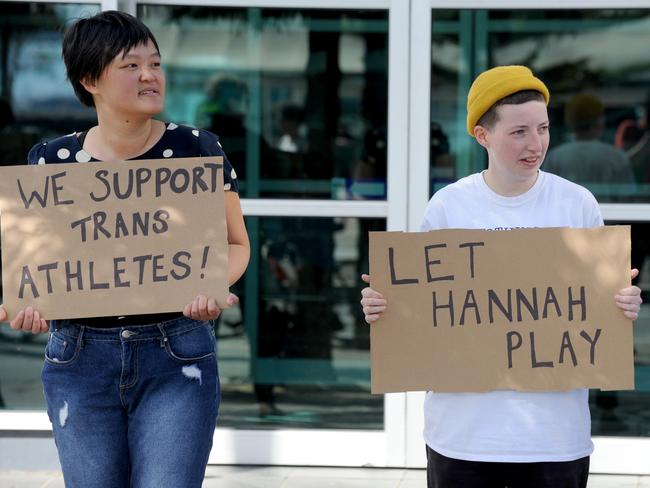
The other concern about the policy is the timeline — to set aside two weeks after the proposed roundtable shows a lack of understanding of how complex this is. Consultation with those who work in the field, such as Proud2Play, would have been able to lay out a much more likely and appropriate time frame. We all want it done right rather than rushed.
It would be good to know how much time was put into its drugs policy for example, and if the same level of detail is being put into its potential transgender inclusion policy.
Just to show how complex it is, you have to take into account that your policy needs to appropriately cover not only transgender women but transgender men. You also have trans kids who — while they may not have yet accessed hormone medication — have been able to medically stop puberty from happening until they’re able to access it.
You also have the problem that there are many people who pass well enough that you don’t know they’re trans, and may feel they are putting themselves at risk by disclosing that. And what policies do we have in place to cover those people who may identify as non-binary? They’re simply the easy questions to answer if you have the right people on board, the much more difficult questions come later on as you get further into the detail.
I’m also deeply worried about what will happen if a policy isn’t in place by the time the season starts, which in Canberra will be early April and in Victoria early May. It may sound like a long way off, for this sort of policy it really isn’t. My biggest fear is that the AFL will make a blanket ruling that no trans players can play until a policy is developed, which will without doubt end up in a class action.
In the ACT it would be illegal, and AFL Canberra wouldn’t legally be able to enforce such a ban, but in other places such as Victoria that’s not the case. When I asked the AFL prior to Christmas I wasn’t assured it wouldn’t happen, only being told that they couldn’t see a policy not being in place by that time.
But unfortunately — and it shouldn’t be the case — trans people are very much used to this sort of treatment. Not just being sidelined when it comes to sport, work and housing; but being objects of ridicule. Of being a curiosity, feeling like you’re the last subsection of community it’s semi acceptable to hate, discriminate against and make fun of.
In the US, where gay marriage was legal in many states years ago, the extreme right moved against trans people as soon as that fight was lost. They went out of their way to instil fear, and with a more deeply conservative religious base than Australia were far more successful.
As a result, in a number of US states it is now illegal for trans people to use a public bathroom which matches their gender. This was done because groups of conservatives were able to whip up enough fear that trans women were men posing as women to try and rape their wives and daughters, and it would be unsafe for trans women to use women’s bathrooms.
The ridiculousness is that this works the other way, and you will now have actual men — trans men — needing to use the women’s bathroom.
That’s an example of the hate and discrimination, but being in London in the middle of last year provided the perfect example of the curiosity and entitlement people feel to comment on your gender. I remember walking into London zoo and the gate attendant asked: “Are you enjoying a day out of your usual clothes sir?”
Why someone would feel it’s OK to ask that I’m not sure, but when I said: “No, I’m female, it’s what is says on my passport” he demanded to see it, telling me that I was full of it. It’s where society is with trans people at the moment, and what we need to change.
As for the AFL policy it will be interesting to see what happens and how many of my recommendations will be taken on board. I certainly haven’t received an invitation to the roundtable as a representative for trans players which was one of them.
I don’t wish for the process to drag out, only to show it is more complex and may take more time, even if it is in my interests that it is done by the end of January. Not just for the certainty it would provide, but if it is and it’s a positive result for trans players, I could still find myself playing in the forthcoming AFLW season should a club need to enlist top up players because of injuries. So we’ll see, but it certainly seems the door isn’t as firmly shut as it might have appeared.

